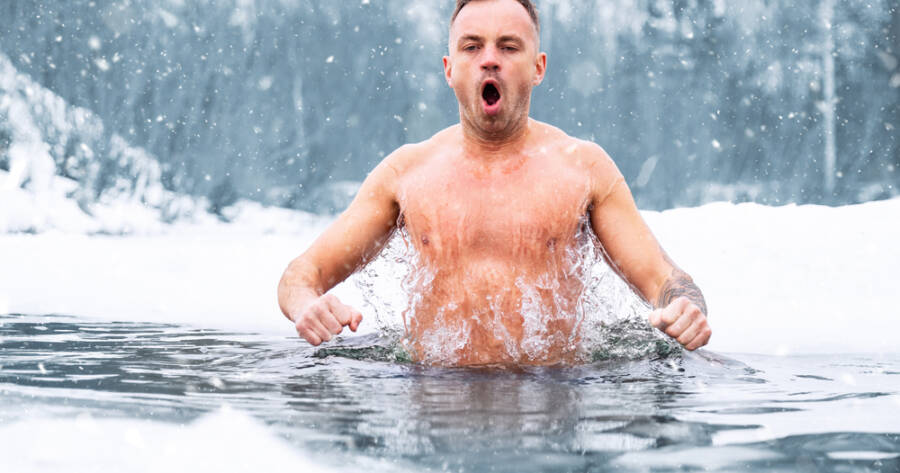In many parts of Eastern Europe, cold showers and cold-water rituals aren’t just passing trends—they’re deeply woven into everyday life. From invigorating morning routines to seasonal plunges in icy lakes, such practices are embraced as a path to vitality, resilience, and mental clarity. Unlike more modern wellness fads, cold exposure has long been part of cultural traditions across countries like Poland, Romania, Ukraine, and the Baltic states. Today, more people across the European Union are rediscovering its physical and mental benefits.
A Tradition Rooted in Simplicity and Strength
Cold-water immersion has historical roots throughout Eastern Europe. Before the arrival of central heating and modern plumbing, washing in cold water was often the norm—especially in rural areas. Over time, it became more than a necessity. It evolved into a symbol of strength, mental discipline, and connection with nature.
In countries like Russia and Ukraine, cold plunges during winter months—often following a sauna or steam bath—are associated with religious rituals such as Epiphany. During this Orthodox Christian celebration, thousands immerse themselves in icy waters, believing it brings physical cleansing and spiritual renewal. But even beyond these ceremonies, cold exposure is seen as a regular path to wellness.
These traditions persist because of their perceived benefits and cultural importance. Cold showers, in particular, are valued as a simple, daily way to activate the body and build mental toughness—without the need for expensive equipment or programs.
Physical Health Benefits of Cold Showers
One of the main reasons cold showers are embraced in wellness routines is their stimulating effect on the body. Cold water exposure causes blood vessels to constrict, which can help improve circulation. When the body warms up again, blood flow increases, delivering oxygen and nutrients more efficiently throughout the system.
Cold showers may also help reduce inflammation and muscle soreness, which is why they’re popular among athletes and physically active people. In Estonia and Latvia, sports centres and local gyms often include cold plunge pools or icy rinse options as part of recovery routines.
Beyond circulation and inflammation, cold showers are believed to boost immune function. Some studies suggest that short, repeated exposure to cold can increase the production of white blood cells, potentially helping the body resist illness.
A Mental Reset for Resilience and Clarity
Perhaps even more powerful than the physical effects are the mental shifts that come from cold exposure. In Eastern European culture, enduring the shock of cold water is often viewed as a test of willpower and mental strength. Over time, this daily practice can build emotional resilience and sharpen focus.
Starting the day with a cold shower may sound harsh, but many who practice it report an immediate mood boost and a sense of clarity. The body’s response to cold includes a release of endorphins—feel-good hormones that improve mood and energy levels. For people living in colder climates, where long winters can dampen motivation, cold showers offer a natural and accessible way to awaken the senses.
In mental wellness circles across the EU, these benefits are gaining attention, especially among those seeking alternatives to medication or high-intensity exercise. The idea is simple: by voluntarily facing discomfort in small doses, you build the capacity to face larger stresses with greater calm.
Practical Ways to Incorporate the Habit
You don’t have to leap into a frozen river to gain the benefits of cold water. A simple cold shower at home can be just as effective if done mindfully and consistently. In many Eastern European homes, especially older ones or in rural settings, cold-water taps are already used year-round, often as part of morning grooming rituals.
To start, many people alternate between warm and cold water—known as contrast showers. Begin with warm water, then turn it cold for 30 seconds to one minute. Repeat this cycle a few times. The contrast not only feels invigorating but also stimulates blood flow and alertness.
If the idea of full cold immersion feels too intimidating, even splashing the face with cold water in the morning or rinsing the feet before bed is a gentle way to engage with the tradition. The goal isn’t pain—it’s presence and purpose.
Cold, Calm, and Culturally Connected
Cold showers may seem extreme to the unfamiliar, but for many in Eastern Europe, they are a quiet act of daily strength. They awaken the body, calm the mind, and honour a connection to natural rhythms and cultural identity. This wellness habit doesn’t rely on trends or tools—it comes from lived experience and centuries of tradition.
As more people across the European Union seek sustainable ways to support health and mental clarity, cold showers offer an approach that is both ancient and accessible. It’s not about discomfort for its own sake—it’s about tapping into energy, discipline, and a deeper sense of well-being. Sometimes, the simplest rituals—like turning the tap to cold—can lead to the strongest transformations.

